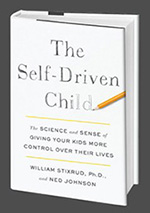Recommended reading from Alt Ed Austin
/
If you’re like me, you look forward to summer as a relaxing time when you’ll catch up on the reading that’s been piling up on your nightstand, in your brain, on your device, or somewhere in cyberspace. Then reality sets in. Maybe you’ll finish it before the end of July and declare victory. More likely, you’ll tackle the first book or two and get distracted somewhere along the way. Or perhaps you’ll skip the list altogether in favor of shorter magazine articles, movies, games, or outdoor diversions during your precious free time. No judgment here; they’re all worthy pursuits!
So, with August winding down and the new school year and less laid-back schedules looming, I won’t burden you with more “must-reads” to add to your “must-do” list. Instead, I’ll just briefly let you know about a few education-related books I’ve read since spring that I think you’d find both enjoyable and useful.
What School Could Be:
Insights and Inspiration from Teachers across America
by Ted Dintersmith
Ted Dintersmith is best known in education circles as producer of the excellent 2015 documentary Most Likely to Succeed and co-author, with Tony Wagner, of the book of the same title. His follow-up book, published this year, grew out of a full year spent traveling to all 50 states, visiting hundreds of schools (public, charter, traditional private, and alternative), and talking to countless students, educators, administrators, parents, and policymakers about innovative ideas they’ve put into practice in all kinds of learning environments.
Dintersmith is a highly successful venture capitalist, but unlike many of his colleagues in the business and tech world who have jumped into the education reform movement in recent years, he does not demonize teachers or focus on tinkering with new forms of standardized testing. He is less interested in talking about all the things that are wrong with conventional education (though he’s not shy about doing that too when pressed for his opinions) than in sharing and spreading the potentially revolutionary practices he’s seen happening, often hidden and unsung, at local levels around the country.
I had the good fortune to meet with Dintersmith (or Ted, as he prefers to be called by everyone) this past spring when he came to Austin for a special screening of Most Likely to Succeed and to talk about his book with local education leaders. I found his knowledge to be vast and detailed; his thoughts on the kinds of education today’s learners need are largely aligned with my own. As you’ll notice if you read What School Could Be, Ted’s enthusiasm is contagious. I imagine you’ll come away from the book as inspired and energized to make change as I did.
Mighty Writing:
College Application Essay Guide
by Laurie Filipelli
in collaboration with Irena Smith
This is a long-overdue public recommendation. For more than a year now, I’ve been privately urging parents of high school juniors and rising seniors to give their kids Laurie Filipelli’s guide to writing effective personal essays for college applications. I’m happy to relay that my own son, who’s heading off to his first year of college at the end of the month, found the advice and exercises in Mighty Writing to be fun, accessible, and just the stimuli he needed to think deeply—and eventually write creatively—about his own experiences, values, and aspirations for a very specific audience: college admissions committees. When Sam was ready to start writing his official submissions last fall, he drew on the lists and vignettes he had composed during the summer while working his way through the guidebook.
For unconventionally schooled students like Sam, those required and optional essays often take on an even larger importance in the college admissions review, helping admissions officers form both a more expansive and a more specific understanding of who the students are and what they might add to the university community. Admissions staff at several colleges that awarded Sam substantial merit scholarships cited his unusual essays as helping his overall application really stand out from the stacks of more formulaic ones.
Austin-based author Laurie Filipelli is an essay writing coach, a former Waldorf high school English teacher, a social justice activist, and an award-winning poet. She’s been busy since publishing Mighty Writing in 2017; in fact, you can meet her and experience her way with words firsthand at the upcoming book launch of her latest poetry collection, Girl Paper Stone.
How to Raise an Adult:
Break Free of the Overparenting Trap and Prepare Your Kid for Success
by Julie-Lythcott-Haims
Some friendly advice from a me as a parent and education professional: Read, as soon as you can, either of these two books, or both. The authors take somewhat different approaches to the same general ideas: that children of all ages, but particularly teens, need WAY more independence and agency than our generation of parents has been conditioned to give them; and that we need to do everything we can to lessen the pressures in their lives, especially academic ones. Our kids’ mental and physical health and happiness depend on it. Both books include helpful, practical suggestions for how parents (and educators, too) can do just that.
Finally, if you’re interested in exploring more great books in the alternative education realm, check out the Alt Ed Library on this site. We’ve added lots of new titles since we unveiled it a year ago, and we’re always open to suggestions! Also consider joining the Smart Schooling Book Group, facilitated by Antonio Buehler, which meets once a month at Laura’s Library in West Austin. This month, it just so happens that the group will be discussing How to Raise an Adult.
Happy reading!
Teri Sperry
Founder, Alt Ed Austin















